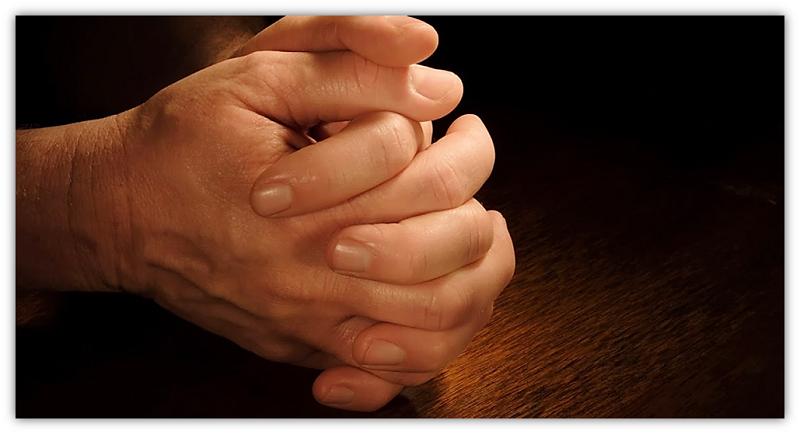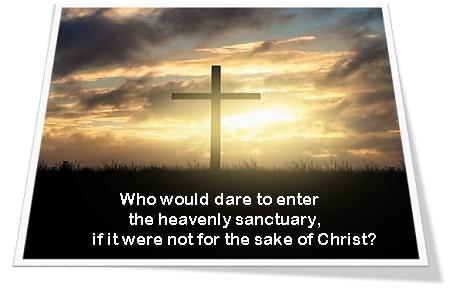Calvin and Prayer
Calvin and Prayer

In this commemorative year, when numerous contributions have already appeared about John Calvin – in printed, spoken and visual form – it is in keeping with Calvin himself to reflect on their value. In this article, it is not only the historical perspective: where would we be without Calvin? that is in the spotlight, but also and especially the practical question: what does Calvin mean to us?
In many handbooks on dogmatics, you will search in vain for a discussion of prayer. In Calvin’s great work, the Institutes, however, it by far makes up the longest chapter. This alone shows us that Calvin’s dogmatics have real value: they aren’t a dry, scholastic system, an abstraction of a lived-out faith, from which all life has gone. On the contrary, in true theology we are concerned with a true practical knowledge of truly practical topics.
Developments⤒🔗
When examining the relevance of Calvin’s theology, especially in our own time, there is every reason to focus on prayer. For it is in our time that we see a number of trends developing in relation to prayer. In this process of development, Calvin’s theology can provide wholesome correction. I’m not suggesting that I’d express a priori disapproval of these developments, as if I would somehow consider Calvin’s theology to be above criticism. However, standing in our own time, I do want to learn from what Calvin has to offer. I think of the following. First, we note the present emphasis on emotion. In their prayers, people want to experience something. But what if you don’t feel anything while you are praying? Has your prayer not been heard, then, or should you conclude that feelings don’t really count? This desire for experience cannot be discounted.
Second, we observe that for many people prayer has taken on a less formal, more casual character than it once had. After all, our communion with God has become more personal and intimate. Rather than a sense of distance from a holy God, we experience the nearness of our Father. At the same time, the reverse of this tendency is to be more open about the more ‘difficult’ aspects of faith in the Lord. Third, we see a growing trend towards individualism: we are much more inclined to say ‘I’ in our prayers. It’s my impression that our communal prayers, such as those in our consistory rooms, also reflect this trend. Of course, this is a personal impression, for which I have no empirical evidence; I do suspect, however, that others also will recognize this trend.
The Reformation of Prayer←⤒🔗
And now to Calvin. First, we will examine Calvin’s own practice of prayer; then we will look at the chapter in the Institutes which deals with prayer; finally, we will attempt to identify a number of points where Calvin’s theology may be of value today.
To begin with, we note that the reformation of the church in the 16th century was also a reformation of prayer. The set sequence of times of prayer, which followed the monastic rhythms, came to an end. People had to learn to pray for themselves. One of Calvin’s contributions to the reformation of prayer was the institution of days of prayer. Actually, he had picked that up from Bucer (just as he had so much of his theology of prayer). Days of prayer were especially significant. They were the only weekday services in which Psalms were sung – other than this they were sung on Sundays only – and on these days Calvin even departed from his beloved lectio continua (his practice of preaching on the text, from beginning to end, of an entire Bible book).

The Reformer’s Prayers←⤒🔗
Relatively little is known about the place which prayer took up in Calvin’s personal life. After all, he was not inclined to talk much about himself.1 At the same time, you can sense his deep personal experience of prayer, such as when in his Commentaries on the Psalms he comments on the struggles and temptations in a life of prayer. For Calvin, it was by no means just theory. It is moving to read what Calvin writes to his friend Farel, in April 1549, on the death of his wife. “Let us pray, she said, let us pray. All of you, pray for me.” When Calvin came home, he spoke with his dying wife about the hope of eternal life, and then, he writes,
I devoted myself to prayer. She listened attentively and with a clear mind, both to my plea of prayer, and to the Word (doctrina).2
Many of Calvin’s public prayers have been handed down: his lectures on the books of the Old Testament were recorded in shorthand, including the brief concluding prayers. One of these prayers is included at the end of this article.
Rules for Prayer←⤒🔗
Calvin’s most comprehensive writing on prayer is to be found – as I already mentioned – in his Institutes, Book 3, Chapter 20. This chapter focuses on two things: four rules for right prayer, and a discussion on the Lord’s Prayer. In this article, we will confine ourselves to the rules for right prayer.
This implies, of course, that not all prayers can be considered right. In particular, Calvin is critical of the Roman Catholic prayers to all kinds of saints, but he also has all forms of undisciplined, improper, and irreverent prayers in mind.
The first rule of prayer is that we, in mind and heart, assume a right attitude: an attitude that is fitting for people who are speaking to God. A reverence, writes Calvin, with which we not only devote ourselves completely to prayer, but also through which we, so to speak, are lifted above and outside ourselves.3 This is not so much an ecstatic experience, as one of deep reverence.
Then, according to the second rule, it is necessary that we acknowledge our own deep poverty, and our longing to receive our desires from God. Calvin stresses that it isn’t sufficient, with a cold heart, to perform a set of obligatory rituals, and then to label this as prayer.4 Our hearts must yearn fervently to receive whatever we pray for. We note, therefore, that for Calvin not only the words that are spoken, but especially the disposition of the heart, desiring fervently to receive, is of the greatest significance. The third rule: whoever prays to God must give up any thoughts of one’s own worthiness, in the light of the glorious holiness of God: in short, deep humility. Calvin points out that in the Bible each of God’s servants, “the holier he is, the more he is cast down when he presents himself before the Lord”.5 For this reason, confession of guilt and a plea for forgiveness must always belong to right prayer.6 For we come to God to plead for His grace.
Fourth: Our prayers are supported by a firm confidence that God will hear them. This is not diminished by our humility in coming to Him, or by our awareness of guilt; on the contrary, these are in inseparable unity with this confidence. The more deeply I become aware of my own unworthiness, the more I depend on God’s word of promise. True prayer has faith as its guide, writes Calvin.
If we would pray fruitfully, he says, we ought therefore to grasp with both this assurance of obtaining what we ask. For only that prayer is acceptable to God, which is born out of such presumption of faith, and is grounded in unshaken assurance of hope.7
Oriented to the Promise←⤒🔗
This brings us to the notion of the promise, which lies at the heart of Calvin’s view on prayer. Prayer is the exercise of “communion of men with God by which, having entered the heavenly sanctuary, they appeal to Him in person concerning His promises, in order to experience that what they believed was not vain”.8 Prayer orients itself to the promise, and the promise calls forth prayer.

It is especially in this orientation to the promise that Calvin’s theology reaches its full Trinitarian flower: The riches of the Triune God are expressed in it. It points to Christ – the One who promises – the Mediator who has opened the way to the Father. Who would dare to enter the heavenly sanctuary, if it were not for the sake of Christ?9 That is why we pray in His name, and the full and humble realization that we have no other way of approaching God removes completely any thought of the intercessory saints.
The promise points to the Father who promises. It is not for nothing, writes Calvin, that at the beginning of our prayer we address God as our Father: “Our Father in heaven.” He is a patient Father, One who does not mind if we should stumble over our words, or even if we should say something that is not quite right. But most of all, says Calvin, he is a Father like the father in the parable of the lost son,
the best and kindest of fathers, provided we cast ourselves upon His mercy, although we are ungrateful, rebellious and forward children.10
The promise also points to the Holy Spirit, “our teacher in prayer”, as Calvin calls Him.11 The Spirit himself intercedes for us with groans that words cannot express, Calvin quotes from Romans 8. At the same time, he immediately turns himself against the kind of mysticism that says we must wait until the Spirit somehow takes over our preoccupied minds. Instead, the Holy Spirit so acts upon our faith, that it is possible for the four rules of right prayer to find their proper expression.
The Praying Person←⤒🔗
And that brings us to the person who prays. Calvin portrays him as the lost son, who is returning to his Father. A sinner, in other words. And then also as a child who freely shares all his cares with his Father. Intimately, as in a family: Calvin frequently uses the term familiaris, especially in this chapter on prayer.12 It isn’t as if man is some kind of independent being, who autonomously enters into certain agreement with God; no, he is continually placed before the face of God, and the only thing he can cling to is God’s Word of promise.
This perspective on prayer leads Calvin to write in an impressive fashion about the struggles and temptations in our life of prayer. He does that, for example, in his sermon on the passage in 2 Samuel, where David prays for the life of the child that God had said would die. Here, Calvin departs from his usual homiletic style, and instead holds a thematic sermon about prayer in time of struggle and temptation. Calvin doesn’t come up with a logical exposition. The assurance in David’s prayer is not found in a rationality that something must logically be true, but in the certainty that God really does hear prayer.
Prayer always bears fruit, Calvin writes, But we do not know exactly how, and since it is beyond our senses, we must wait with patience, and yet always persevering in our prayers.13
David perseveres in prayer, because God always cares for His children, even when it seems that He has turned His back to them. This is prayer in hope against all hope, a prayer that clings to the promises of God.
Emotion in Prayer←⤒🔗
Here we see (and this is where we begin to bring in the harvest) how Calvin on the one hand gives room for human feelings and emotions, but on the other hand does not succumb to a one-sided culture of emotion, such as we are exposed to today. Prayer cannot come from a cold heart; it requires a living, heartfelt conviction of our own unworthiness, and a living communion with Christ. But this is not emotion only. The real experience of faith, has its spark in God’s word of promise. In his commentary on Psalm 119:107, “Preserve my life, according to Your word”, Calvin observes:
We will pray coldly, or rather we will not pray at all, if God’s promise does not inspire us with courage in our sorrow and distress.14

This experience of faith is more than just emotion, it is the work of the Holy Spirit, arising from God’s Word of promise. Prayers are heard, not in the first place because of the sincerity of my feelings, but because of the promise of God. See David, who clings to God’s promise, even when God appears to turn His back on him. This appears to me to be a healthy correction in a culture of experience, when something seems to be true only if it feels that way. A rediscovery of a life that rests on God’s word of promise is vital in every segment of the Christian church.
Nearness and Exaltation←⤒🔗
Next, let us consider that in our day there is an emphasis on the nearness of God, and much less of an eye for His exaltation. Calvin keeps these two closely together. On the one hand, the exalted glory of God compels us to recognize our own unworthiness. On the other hand, God is near to us with His grace, as a loving Father – a Father who nonetheless at times also chastises.
As I see it, Calvin offers a balance that is especially instructive for our time. The more so, because this balance does not remove all the tension between the two; each overlaps with and influences the other, so to speak. On the contrary, Calvin lets both stand, and he leaves the tension where it is: God’s exaltation and His nearness, God’s loving care and his discipline. With all the emphasis in our time for the nearness of God, it would be healthy to remember that it is the nearness of the exalted God, the One who always will be exalted.
Individually and in Communion←⤒🔗
In this way, there will also be a good balance between the individual and the community. “We pray our Father”, writes Calvin, “and not my Father, so that we may be filled with a great sense of brotherly love.”15 It is about me, but it isn’t just about me. In Christ, who was not ashamed to call us brothers, our prayer takes on a communal tone. This added value leads me to believe that we, in our communal prayers, should use “we” rather than “I”. And to realize that our personal prayers also are not just about ourselves. For ultimately, we are praying for the coming, of the Kingdom of God. This is clear from the prayers with which Calvin concluded his lectures, many of which have been preserved. His prayer was always directed towards the coming of the kingdom of Christ. This is what keeps Calvin’s prayers from becoming some kind of escape from this world; rather, they stand right in this world, in full expectation of the kingdom of Christ, in communion with all the saints. Let us listen to that in the prayer which concludes one of Calvin’s lectures on Hosea:
Grant, Almighty God, that as we now carry about us this mortal body, yea, and nourish through sin a thousand deaths within us; O grant that we may ever by faith direct our eyes toward heaven, and to that incomprehensible power, which is to be manifested at the last day by Jesus Christ our Lord, so that in the midst of death we may hope that thou wilt be our Redeemer, and enjoy that redemption which he completed when he rose from the dead, and not doubt that the fruit which he then brought forth by his Spirit will come also to us when Christ himself shall come to judge the world; and may we thus walk in the fear of thy name, that we may be really gathered among his members, to be made partakers of that glory which by his death he has procured for us. Amen.16

Add new comment